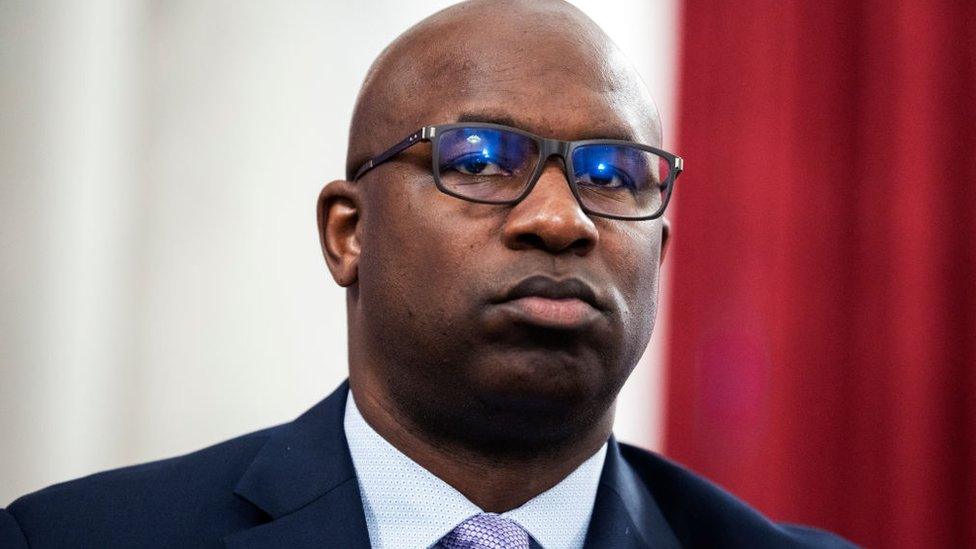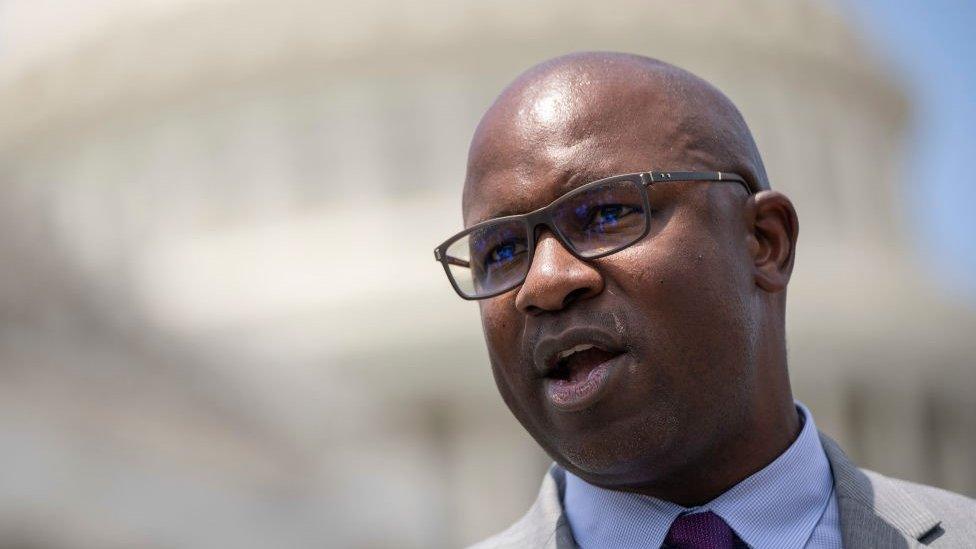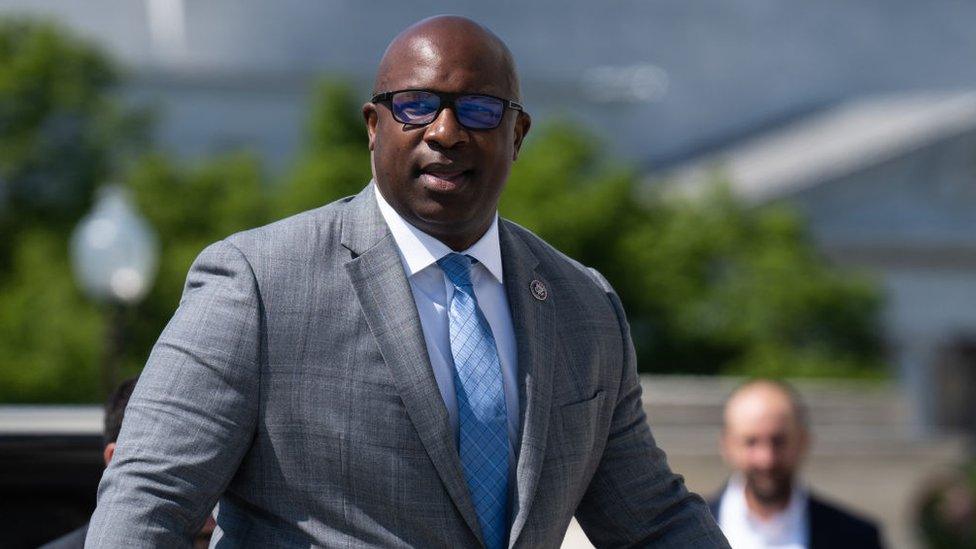Jamaal Bowman: US Democrat US lawmaker charged over false Capitol fire alarm
- Published

A congressman in the US House of Representatives is expected to plead guilty to falsely triggering a fire alarm in a Capitol office building.
Rep Jamaal Bowman said in a statement on Wednesday that he would pay a fine "and look forward to these charges being ultimately dropped".
He is facing a single charge of "knowingly" setting off a false fire alarm, according to a court filing.
The New York Democrat has said that he triggered it by accident.
The alarm prompted an hour-long evacuation and came as Democrats were attempting to delay a vote as they sought more time to read a stopgap funding bill and decide whether to support it.
While Mr Bowman had said he triggered the alarm by mistake on 30 September - thinking it would get a door to open while he was in a rush - Republicans accused him of deliberately attempting to sabotage a vote on the bill.
Mr Bowman is due to to appear in DC on Thursday morning for his arraignment on the misdemeanour charge, which carries a maximum penalty of $1,000 (£825) and six months in prison.
According to CBS, the BBC's US partner, Mr Bowman told reporters on Wednesday he would pay the fine and the charges could be dropped after three months if he follows the bail conditions. He called the incident a "lapse in judgment".
He will also write an apology letter.
"Congressman Bowman was treated like anyone else who violates the law in the District of Columbia," the spokesperson for the attorney general for the District of Columbia said.
"Based on the evidence presented by Capitol Police, we charged the only crime that we have jurisdiction to prosecute."
In an affidavit, Capitol police noted there were three signs near the door warning about activating emergency exits and fire alarms and that Mr Bowman had left the area quickly after the alarm was triggered. But the affidavit noted he had denied to police that the act was intentional or that he had meant to disrupt any official proceedings.
Related topics
- Published1 October 2023

- Published2 October 2023
